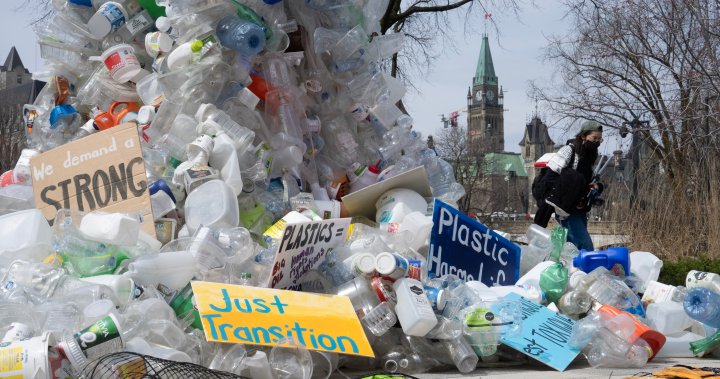
Nearly 200 fossil fuel, chemical lobbyists to join UN talks on plastic pollution
Global News
Nearly 200 fossil fuel and chemical industry lobbyists plan to join this week's United Nations negotiations on the first global treaty to curb plastic pollution.
Nearly 200 fossil fuel and chemical industry lobbyists plan to join this week’s United Nations negotiations on the first global treaty to curb plastic pollution — a 37 per cent jump from the previous gathering in November, an analysis released on Thursday showed.
The jump in registered industry representatives at the negotiations in Ottawa, Canada, comes as talks enter a crucial stage. There is just one round of negotiations left to hammer out a final text that all countries agree on by the end of the year.
The aim is to create a legally binding treaty that would cover the entire lifecycle of plastic, from production to disposal or reuse. But some fossil fuel and petrochemical industry groups, as well as countries that rely on those industries, are opposed to any U.N. treaty that would impose strict production caps or chemical or product phase-outs.
While more than 4,000 people have registered to attend the talks, civil society groups said the heavy presence of representatives of industries that would be the target of new regulations could undermine the negotiation process.
“The presence of actors in the room who are responsible for generating this crisis creates power imbalances that obstruct progress,” said Rachel Radvany, environmental health campaigner at the Center for International Environmental Law (CIEL), which conducted the analysis.
Similar complaints were made about the heavy representation of fossil fuel industry lobbyists at last year’s COP28 climate change talks.
CIEL, a nonprofit law group, used registration data provided by the U.N. Environment Programme, which is overseeing the talks. CIEL counted representatives of oil companies, chemical companies and their trade groups as lobbyists, as well as non-profits or think-tanks that receive significant support from those industries.
The International Council of Chemical Associations, which is comprised of members of the plastics, petrochemical and chemical manufacturing industries, hit back at the CIEL analysis, saying NGOs would be there in greater numbers than industry representatives.
